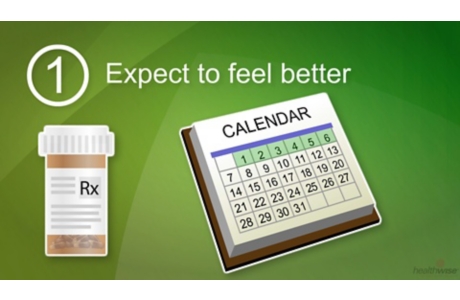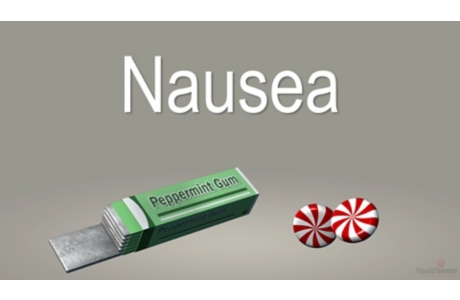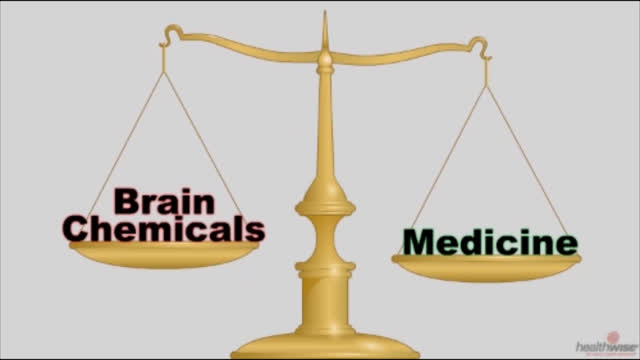FDA Advisories for Antidepressants
Topic Overview
FDA advisories. The U.S. Food and Drug Administration (FDA) has issued advisories to patients, families, and health professionals to closely monitor for warning signs of suicidal behavior in children and adults younger than 25 who take antidepressants. This is especially important at the beginning of treatment or when doses are changed.
The FDA also advises patients to watch for an increase in anxiety, panic attacks, agitation, irritability, insomnia, impulsivity, hostility, and mania. It is most important to watch for these behaviors in children, who are less able to control their impulses and may be at greater risk for suicidal behaviors.
The FDA has not recommended that children and young adults stop using antidepressants. If you have concerns about a child or young adult who is taking an antidepressant, talk to a doctor.
After reviewing 24 antidepressant trials involving over 4,400 children and teens, the FDA concluded that young people using antidepressants are more likely to report having suicidal thoughts and behavior. On average, 4 out of 100 children who used an antidepressant reported having suicidal thoughts or behavior, compared to 2 out of 100 who took a placebo. This means that 96 out of 100 children who used antidepressants did not report having suicidal thoughts or behavior. The highest risk was during the first few months of treatment. The study found no increase in completed suicides, and no suicides occurred in any of the trials studied.footnote 1
A newer study found that the benefit of taking antidepressants was greater than the risk of suicidal thoughts and behavior in children and teens.footnote 2
The FDA has asked drug companies to include in their packaging inserts a “black box” warning, the government’s strongest medication warning. The warning, appearing in bold letters inside a black box, recommends that anyone considering the use of that drug (or any antidepressant) in a child or young adult needs to carefully balance the risk of taking the drug with the need to use it. It also recommends that family members and caregivers closely watch for warning signs of suicide in a child or young adult taking an antidepressant.
The black box warning notes the drug’s approved uses. Right now, only certain antidepressants are approved for use in children and teens. But other antidepressants are commonly used. Health professionals often prescribe medicines that are not specifically approved but may still be safe and effective. This is called unlabeled use.
The FDA also requests that a Patient Medication Guide (MedGuide), with user-friendly information about suicide risk and precautions that can be taken, be handed out with each prescription or refill of a medicine.
Although suicidal thoughts and behavior are a risk for an antidepressant, the FDA recognizes that for many young people, the benefits of antidepressant treatment with proper precautions may be greater than the risks. Left untreated, depression can cause a number of long-term consequences, including suicidal behavior. For some young people, taking an antidepressant can help ease the symptoms of depression and may actually reduce the risk of suicide in the long run.
If your child is currently taking an antidepressant, watch carefully for warning signs, especially during the first few weeks of treatment. If you are concerned about the FDA advisory or about warning signs of suicide, contact your child’s doctor.
No one should ever stop taking antidepressants suddenly. An antidepressant should be tapered off slowly and only under the supervision of a health professional. Abruptly stopping antidepressant medicines can cause side effects or a relapse into another depressive episode.
Health Tools
Health Tools help you make wise health decisions or take action to improve your health.
References
Citations
- U.S. Food and Drug Administration (2007). Antidepressant use in children, adolescents, and adults. Available online: http://www.fda.gov/Drugs/DrugSafety/InformationbyDrugClass/UCM096273.
- Bridge JA, et al. (2007). Clinical response and risk for reported suicidal ideation and suicide attempts in pediatric antidepressant treatment: A meta-analysis of randomized controlled trials. JAMA, 297(15): 1683–1695.
Current as of: May 28, 2019
Author: Healthwise Staff
Medical Review:John Pope, MD, MPH – Pediatrics & Kathleen Romito, MD – Family Medicine & David A. Axelson, MD – Child and Adolescent Psychiatry
This information does not replace the advice of a doctor. Healthwise, Incorporated, disclaims any warranty or liability for your use of this information. Your use of this information means that you agree to the Terms of Use. Learn how we develop our content.






